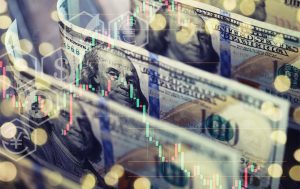The U.S. dollar’s recent towering rally hit a pause on Wednesday as markets turned cautious ahead of a pivotal U.S. consumer inflation report. Meanwhile, the yen gained ground amid growing expectations of a Bank of Japan (BOJ) rate hike at next week’s policy meeting.
Key Drivers in Focus
- BOJ Rate Hike Speculation Bolsters Yen
The yen surged by 0.5% against the dollar, trading at 157.29 per dollar after comments from BOJ Governor Kazuo Ueda. He emphasized that the central bank will raise interest rates if economic and price conditions continue to improve.
Deputy Governor Ryozo Himino echoed this sentiment, confirming that a rate hike discussion will take place next week. Markets now price a 70% probability of a 25-basis-point hike. However, internal dissension within the BOJ’s policy board could delay a decision until March.
Finance Minister Katsunobu Kato reiterated the government’s readiness to intervene if speculative activity causes “excessive” foreign exchange movements. - Trump’s Tariff Policies and Market Impact
President-elect Donald Trump’s impending return to the White House on January 20 remains a key focus for traders. His potential tariff policies could stoke inflation and reshape global financial markets. Analysts warn that tariffs could keep Treasury yields elevated, further supporting the dollar. - U.S. Inflation Report Awaited
Markets are closely watching Wednesday’s U.S. consumer price index (CPI) report, which is expected to show a 0.2% increase in core prices for December. A surprise increase could dampen expectations of further Federal Reserve rate cuts, while weaker data may briefly weigh on the dollar.
Last week’s robust jobs report already reduced market bets on Fed easing, reinforcing the narrative of a resilient U.S. economy.
Currency Movements
- USD/JPY: The yen rose to 157.29 per dollar, bolstered by BOJ commentary and expectations of sustained wage growth.
- EUR/USD: The euro was steady at $1.0301, recovering from Monday’s two-year low.
- GBP/USD: The pound fell 0.08% to $1.2207 as rising U.K. borrowing costs and fiscal concerns weigh on sentiment.
- AUD/USD: The Australian dollar held at $0.6189, finding support from stabilizing commodity prices.
- NZD/USD: The kiwi dipped 0.09% to $0.5599, remaining near its two-year low.
Market Sentiment and Outlook
Despite short-term fluctuations, the dollar remains supported by rising Treasury yields and expectations of fewer Fed rate cuts in 2025. The dollar index (DXY) edged lower to 109.17, backing off from its two-year high as traders reassess inflation risks.
Analysts warn that any significant deviation in the U.S. inflation report could spark volatility. However, broader attention remains on Trump’s potential economic measures post-inauguration and their impact on inflation and trade relations.
The yen’s recent performance underscores market sensitivity to BOJ policy decisions, while the dollar’s dominance persists amid shifting inflation narratives. Traders should monitor the BOJ’s upcoming policy meeting and U.S. inflation trends closely as they navigate uncertain global markets.



